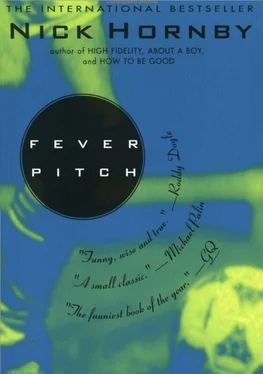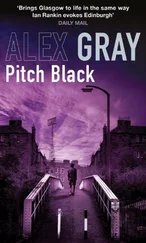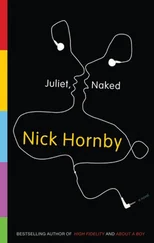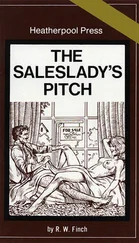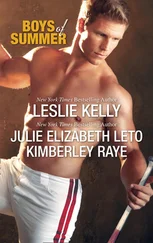In truth, he didn’t have much of a career at Arsenal. He retired with a serious knee injury after just three seasons with us, but in that last season he only played four times. He still managed to turn himself into a legend, though. He was a magnificent player, on his day, but there weren’t too many of those at Highbury; his best spell was at Newcastle, a habitually poor team, but such was his ambition that he seems to have succeeded in muscling his way into the Arsenal Hall of Fame. ( Arsenal 1886-1986 , by Phil Soar and Martin Tyler, the definitive history of the club, features him prominently on the cover, whereas Wilson and Brady, Drake and Compton are nowhere to be seen.)
So why have we let him take over in this way? Why is a player who played less than a hundred games for Arsenal associated with the club more readily than others who played six or seven times that number? Macdonald was, if nothing else, a glamorous player, and we have never been a glamorous team; so at Highbury we pretend that he was more important than he really was, and we hope that when we put him on the cover of our glossy books, nobody will remember that he only played for us for two years, and that therefore we will be mistaken for Manchester United, or Tottenham, or Liverpool. Despite Arsenal’s wealth and fame, we’ve never been in that mould—we have always been too grey, too suspicious of anyone with an ego—but we don’t like to admit it. The Supermac myth is a confidence trick that the club plays on itself, and we are happy to indulge it.
CAMBRIDGE UNITED v DARLINGTON
29.1.77
I applied to Cambridge from the right place, at the right time. The university was actively looking for students who had been educated through the state system, and even my poor A-level results, my half-baked answers to the entrance examination and my hopelessly tongue-tied interview did not prevent me from being granted admission. At last my studiously dropped aitches were paying dividends, although not in the way that I had at one stage anticipated. They had not resulted in my acceptance on the North Bank, but they had resulted in my acceptance at Jesus College, Cambridge. It is surely only in our older universities that a Home Counties grammar school education carries with it some kind of street-cred.
It is true that most football fans do not have an Oxbridge degree (football fans are people, whatever the media would have us believe, and most people do not have an Oxbridge degree, either); but then, most football fans do not have a criminal record, or carry knives, or urinate in pockets, or get up to any of the things that they are all supposed to. In a book about football, the temptation to apologise (for Cambridge, and for not having left school at sixteen and gone on the dole, or down the pits, or into a detention centre) is overwhelming, but it would be entirely wrong to do so.
Whose game is it anyway? Some random phrases from Martin Amis’s review of Among the Thugs , by Bill Buford: “a love of ugliness”; “pitbull eyes”; “the complexion and body scent of a cheese-and-onion crisp”. These phrases are intended to build up a composite picture of the typical fan, and typical fans know this picture is wrong. I am aware that as far as my education and interests and occupation are concerned, I am hardly representative of a good many people on the terraces; but when it comes to my love for and knowledge of the game, the way I can and do talk about it whenever the opportunity presents itself, and my commitment to my team, I’m nothing out of the ordinary.
Football, famously, is the people’s game, and as such is prey to all sorts of people who aren’t, as it were, the people. Some like it because they are sentimental socialists; some because they went to public school, and regret doing so; some because their occupation—writer or broadcaster or advertising executive—has removed them far away from where they feel they belong, or where they have come from, and football seems to them a quick and painless way of getting back there. It is these people who seem to have the most need to portray football grounds as a bolt-hole for a festering, vicious underclass: after all, it is not in their best interests to tell the truth—that “pitbull eyes” are few and far between, and often hidden behind specs, and that the stands are full of actors and publicity girls and teachers and accountants and doctors and nurses, as well as salt-of-the-earth working-class men in caps and loud-mouthed thugs. Without football’s myriad demonologies, how are those who have been distanced from the modern world supposed to prove that they understand it?
“I would suggest that casting football supporters as ‘belching sub-humanity’ makes it easier for us to be treated as such, and therefore easier for tragedies like Hillsborough to occur,” a wise man called Ed Horton wrote in the fanzine When Saturday Comes after reading Amis’s review. “Writers are welcome at football—the game does not have the literature it deserves. But snobs slumming it with ‘the lads’—there is nothing we need less.” Precisely. So the worst thing I can do for the game is offer atonement for, or deny, or excuse my education; Arsenal came long before Cambridge, and has stayed with me long after, and those three years make no difference to anything, as far as I can see.
In any case, when I arrived at college, it became clear that I was not alone: there were scores of us, boys from Nottingham and Newcastle and Essex, many of whom had been educated through the state system and welcomed by a college anxious to modulate its elitist image; and we all played football, and supported football teams, and within days we had all found each other, and it was like starting at grammar school all over again, except without the Soccer Star stickers.
I went up to Highbury from Maidenhead in the holidays, and travelled down from Cambridge for the big games, but I couldn’t afford to do it very often—which is how I fell in love all over again, with Cambridge United. I hadn’t intended to—the Us were only supposed to scratch the Saturday-afternoon itch, but they ended up competing for attention in a way that nobody else had managed before.
I was not being unfaithful to Arsenal, because the two teams did not inhabit the same universe. If the two objects of my adoration had ever run up against each other at a party, or a wedding, or another of those awkward social situations one tries to avoid whenever possible, they would have been confused: if he loves us , whatever does he see in them ? Arsenal had Highbury and big stars and huge crowds and the whole weight of history on their back; Cambridge had a tiny, ramshackle little ground, the Abbey Stadium (their equivalent of the Clock End was the Allotments End, and occasionally, naughty visiting fans would nip round the back of it and hurl pensioners’ cabbages over the wall), less than four thousand watching at most games, and no history at all—they had only been in the Football League for six years. And when they won a game, the tannoy would blast out “I’ve Got a Lovely Bunch of Coconuts”, an eccentric touch that nobody seemed to be able to explain. It was impossible not to feel a warm, protective fondness for them.
It only took a couple of games before their results started to matter to me a great deal. It helped that they were a first-class Fourth Division team—manager Ron Atkinson had them playing stylish, fast, ball-to-feet football which usually brought them three or four goals at home (they beat Darlington 4-0 on my first visit), and it helped that in goalkeeper Webster and fullback Batson there was an Arsenal connection. I’d seen Webster throw in two goals during one of his few games for Arsenal back in 1969; and Batson, one of the first black players in the Football League in the early seventies, had been converted from a poor midfield player to a classy full-back since his move from Highbury.
Читать дальше
